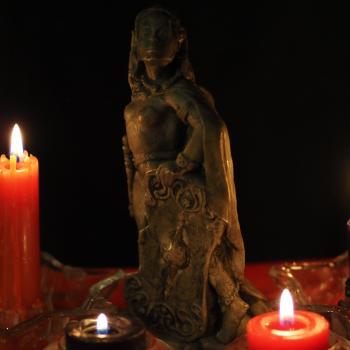In my experience the Kingdom is real, for I've been there and seen it for myself. Many years ago I had an abrupt and totally unexpected change of consciousness that lasted a full week, and it was the result of an act of utter surrender to divine will. At the time my personality was such that it didn't take a lot to push my buttons. I was often defensive, grumpy, and judgmental. But in this altered state of consciousness, nothing—literally nothing—could upset me. Not only did I not express anger, there was no anger to express. Anger itself did not exist in my consciousness. I had but a single attitude and a single response to everything that happened around me: unconditional love and unbearable compassion for every living being.
This consciousness ended abruptly after seven straight days, and I understood then, as I understand now, that I had experienced an instance of cosmic grace. Grace allowed me to experience firsthand what life would be like all the time if only my consciousness were permanently altered. This consciousness is the pearl of great price to which Jesus referred. For Hindus and Buddhists, it is the jewel within the lotus. It seems to me that the personal quest for such a treasure is the most worthy goal of any life.
I was a religious person at the time this event took place. Quite possibly I would not have had this experience had it not been for my religious faith. But the experience itself transcended all religious doctrines and dogmas.
We hardly need to be reminded about the limitations of religion. Throughout history religions have caused wars, fostered terrorism in small and great ways, and very often killed their own prophets and mystics.
Marguerite Porete, quoted earlier, was a fourteenth century Roman Catholic nun. She was also a mystic, and that led to her being burned at the stake by the Inquisition in 1310 C.E. The evidence against her was her own book, The Mirror of Simple Souls, in which she was audacious enough to suggest a non-dualistic universe, and to describe how the soul could unite with the Divine.
But without religion, Jesus, the Buddha, Saint Francis, and Mahatma Gandhi might never have graced this earth. Religions have always been the ferries that deliver to our shores the profound insights of humanity's spiritual giants.
Since the mystical experience transcends religious dogma and allows one to have direct insight into the nature of Reality, we should not be surprised that the essential understanding of all true mystics is, in all the most important ways, identical. And since these men and women came from different religions and cultures, neither should we be surprised that they used, and continue to use, different religious metaphors to describe their understanding of Ultimate Reality.
Thus, the validity of the mystical experience is confirmed not by differences, but by what mystics hold in common. William James, in his Varieties of Religious Experience, states that overcoming "...all the usual barriers between the individual and the Absolute is the great mystic achievement. In mystic states we become one with the Absolute and we become aware of our oneness. This is the everlasting and triumphant mystic tradition, hardly altered by differences of clime and creed.
"In Hinduism, in Neo-Platonism, in Sufism, in Christian mysticism, all these men and women overcame all the usual barriers between the individual and the Absolute. Nothing less than the unification of the individual with its Source of Being was, for them, a passionate necessity."
Many students of religious texts assume that those mystics in Hindu, Sufi, Christian, (and even Jewish) traditions who use the metaphor of the "lover" and "the Beloved" were, by definition, dualists. After all, the metaphor of lover and Beloved seems to suggest both a subject and an object. But this is a wrong assumption. I believe that the mystics' own words in this book will irrefutably demonstrate that they were all monists, not dualists—for the realization of Oneness is the very nature of the mystical experience.
There are those who would disagree, but I believe that the various philosophical differences between one mystical tradition and another are ultimately irrelevant and unimportant. All true mystics seek union with the All. They also recognize that physical phenomena are, essentially, illusory. All mystics also recognize that the only way to reach their goal of union with the One is through the sacrifice of their own ego-identity.
It should not matter that different mystics use different metaphors and cultural/religious language to describe their interpretation of the Absolute. No matter what name mystics choose to use when speaking of Ultimate Reality, be it "God," "Brahman," "Buddha-nature," "Nirvana," or the "Beloved," they are all talking about the same Reality.
That some mystics, whether Jews, Christians, Sufi Muslims, or Hindus, use "God language," while Buddhists and Taoists do not, is really irrelevant. When we are speaking about the abstract and impersonal aspect of the Supreme, we call it the Absolute. When we want to emphasize the Absolute as a self-aware, self-blissful being, we might use the word "God."




